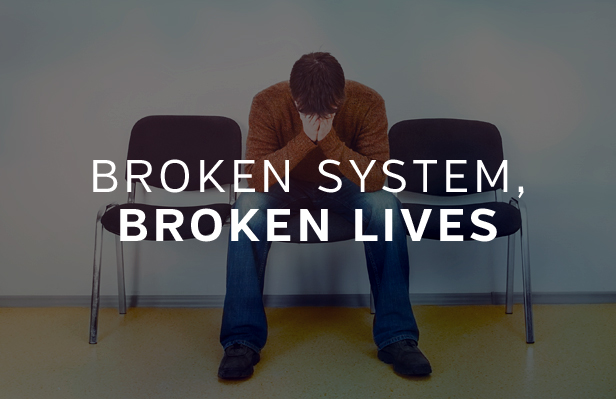Commentary

Healthcare Problems Require Personal Solutions
Next month, Obamacare enrollment will start anew. Rather than a solution to an ailing healthcare system, this promises mass confusion, higher prices, and more families looking for help. The problem with Obamacare isn’t just a faulty website—it’s that the system pits millions of individuals with unique health needs against a gigantic and incompetent bureaucracy.
Take Sally from Southeastern Pennsylvania. Before her elderly sister lost lucidity, Sally purchased insurance for her through the Obamacare exchange in addition to a policy from a private insurer. The private policy proved better.
“On her Obamacare policy she was allowed 60 [home nurse] visits,” Sally says, “from the other plan she was allowed unlimited. So early on I decided that we only needed one policy and I would cancel the Obamacare.”
But Sally couldn’t cancel the exchange policy and the premiums kept piling up. The extra financial burden was just the tip of the iceberg. The Obamacare policy also overrode the private policy, meaning Sally’s bedridden sister’s nurse visits would no longer be covered.
Sally tried to fax her power of attorney to cancel the policy but was told there was no fax number. She tried to mail it, but they said there was no mailing address.
Weeks later, bureaucrats required Sally’s barely-conscious sister to give verbal consent over the phone. Eventually Sally’s sister passed away, leaving the grief-stricken family to continue battling out-of-pocket costs from weeks of denied care.
The system failed her miserably.
About the experience, Sally says, “This is a nightmare that no one should have to go through.” But many others have.
Mary, a Philadelphia resident, and her daughter Virginia were worried about being uninsured after the March 31 deadline. Because they weren’t covered by her husband’s employer, Mary and Virginia purchased an exchange plan for $234 per month. Then, Mary received what she thought was good news.
“Several weeks later the employer changed brokers and offered to put our daughter on the family plan again,” Mary explains.
Relieved, Mary called the exchange to cancel Virginia’s Obamacare coverage. The result? In Mary’s words, “Epic fail.”
According to Mary, “The Marketplace supervisor refused to speak to me and told my daughter that I was ‘trying to cancel your insurance without your permission.’ She told my daughter to take the call off speaker phone so she could speak with her privately. When she refused, the representative said, ‘I’m going to terminate this call.’ And that’s exactly what she did.”
Eventually Virginia’s plan was cancelled, but only after hours on the phone, weeks of waiting, and hundreds in accumulated premiums.
Mary says the cost was significant, “We live in a four room apartment; we haven’t had a car in ten years. There’s just no way we can pay this and our new higher family insurance rate. It’s frustrating; I’m trying to do the right thing.”
Something is clearly wrong with a system that punishes people for trying to do the right thing.
Pennsylvanians needed healthcare reform before Obamacare. But in too many cases, the supposed solution has created more headaches, not better care.
What kind of reforms will actually produce affordability, better access, and higher quality care? There is no silver bullet, but this week twenty organizations across the country are taking part in Healthcare Solutions Week to highlight steps lawmakers in Washington D.C., and states can take.
Nationally, Congress should get rid of coverage mandates and let patients choose what their plan does and doesn’t cover. After all, why do single men need maternity coverage? Congress should also treat employer-based insurance and individual insurance the same—no one should be punished for not getting insurance through work.
In Harrisburg, lawmakers can help ease waiting times and improve the quality of care. For instance, House Bill 1760 gives doctors liability protection if they volunteer at free clinics to help the neediest among us. And Senate Bill 1063 would give nurse practitioners more freedom to prescribe medication and manage their own practices.
Granting more authority to Washington has led to serious harm—it’s time to try another approach. It’s time to empower Pennsylvanians like Sally and Mary with solutions that fit their own unique needs.
# # #
To protect their privacy, Sally’s name has been changed and Mary’s last name has been withheld. Elizabeth Stelle is director of policy analysis for the Commonwealth Foundation (CommonwealthFoundation.org), Pennsylvania’s free market think tank.